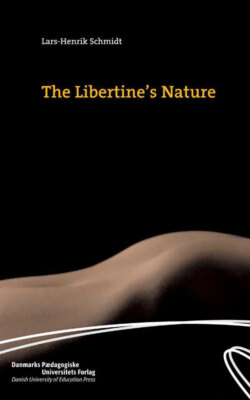Читать книгу The Libertine's Nature - Lars-Henrik Schmidt - Страница 6
На сайте Литреса книга снята с продажи.
The Thesis
ОглавлениеIf Sade is currently becoming visible on the horizon, it is because as the philosopher of extremes and revolutionary consequences, as the philosopher of excess, he constitutes the actual challenge and thus also the occasion for a post-revolutionary thinking that must tragically reconcile itself to the impossibility of complete otherness as well as to the certainty that nothing, or only Nothing, remains as it is.
It is my thesis that a current social-philosophical reflection on morality and ethics, up against the now predominant health morality and the ethics of sober-mindedness, can cast anchor by constructing the social in the modern world’s most asocial thinker. Quite simply, the point is that apparently – even in Sade – limits appear as to how asocially one can behave. At the point where even Sade must give up we find the possibility of the social.
Thus, this book is not intended for readers who may wish to find an introduction to Sade’s universe, although I hope it can function in this way as well. This presentation is on the contrary an interpretation, i.e., an interpretive construction that at the same time is a constructive interpretation, the project of which is to construct a theory by interpreting the teachings of Sade.
An interpretation wants something from Sade, wants to learn something from Sade, in contrast to a purely hermeneutic reading of Sade that in its devotion simply wants to understand him, but also in contrast to a deconstructive reading that though self-promoting wishes to present the play of the texts in a surprising manner and with surprising consequences. An interpretation in this sense is not a literary textual analysis that focuses on the narrative force. In an interpretation of Sade, the work is perceived as the text-body of which we will take advantage with a view to the text’s desire.
